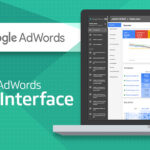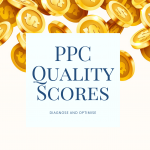One of the quickest ways to draw a lot of potential customers to your website is pay-per-click (PPC) advertising. When it’s used correctly, PPC can be a fantastic way to drive relevant visitors to your website and generate new online sales for your business.
The Pay Per Click campaign is not simple to manage. You need expertise and appropriate knowledge. Avoid the most common mistakes and save yourself hundreds of dollars. The following are the 7 common mistakes that you can avoid to save your time and money.
Choosing the wrong keywords
Keywords are the primitive entities of PPC ads. Selecting an accurate and relevant set of keywords will facilitate increasing the number of clicks on the ad and increasing the web site traffic also sales.
Maintain a decent proportion of audience keywords and product keywords by dropping some of the less attention-grabbing audience phrases. Concentrate on the categories nearest to the product and services.
For example, if you are offering Healthcare products, then “Healthcare Industry” is a potential product phrase, but “Healthcare Industry jobs” is a user phrase and therefore less interesting.
Ignoring negative keywords
Negative keywords allow you to exclude search terms from your campaigns and assist you to target only the keywords that relate your customers. When you are choosing negative keywords for your PPC campaigns, look for search terms that are the same as your keywords.
Neglecting ad extensions
Another element of PPC is ad extensions. Extensions expand your ad with additional information and increase your ad’s click-through rate, as well as increase consumer engagement and direct the flow of customers.
Extension formats include:
- Call buttons
- Location information
- Links to specific parts of your website
- Additional text and more…
Each extension serves as another opportunity to grab the attention of a potential customer, as well as lending credibility.
Not Maintaining a Quality Score:
A: What is Quality Score?
Every marketer should aware of the quality score while creating ads. Quality Score is Google’s rating of the quality and relevance of both your keywords and PPC ads. Quality score important to boost your ratings by working consistently on your account. If you have a low-quality score, it is very difficult to get them to show up, because your ad rank will be too low.
B: How to Maintain Quality Score
Quality Score is a reflection of the health of your campaigns and influences overall account performance. Here are the main factors that are taken into consideration to improve the Quality Score.
- Landing page quality
- Targeted devices
- Keyword relevance
- Improve site load times
Not Using Long Tail Keywords
Long-tail keywords are longer and more specific keyword phrases that visitors are more likely to use. Managing long-tail keywords is simply a matter of establishing better lines of communication between your business and the customers. It is much easier to rank for long-tail keywords than for a lot of common keywords. Another benefit of focusing on long-tail keywords is that, though these keywords are used less in search, the visitor that finds your website using them is additionally possible to shop for your service or product.
Not Optimizing the Landing Page
A well-designed landing page can greatly increase conversions for your PPC campaigns. A Landing Page is a page that focuses on information targeted towards a particular user. In order to make money online, you need to get your web visitors to convert. When you’re creating landing pages don’t create the same as the home page. A home page is about your services and products. If you’re creating a landing page create a separate page related to ads. Then the customers will redirect to the proper page.
Not Using Proper Keyword Match Type
When you set up an Adwords campaign, you’ll have to create ad groups and then pick keywords to target within those. In most cases, you’ll want to start with exact keywords to ensure ad relevance. What’s important here is that your quality score is only based on how well your ad performs on exact match keywords.
There are 3 main types of keywords that you can specify.
-
Exact Match Keyword
-
Phrase Match Keyword
-
Broad Match Keyword
In order to achieve a higher ROI in PPC campaigns, you should avoid the misconceptions followed by other marketers. By experimenting with new features, a tool available in PPC, you can see the significant growth at a comparatively lower cost.







1 Comment